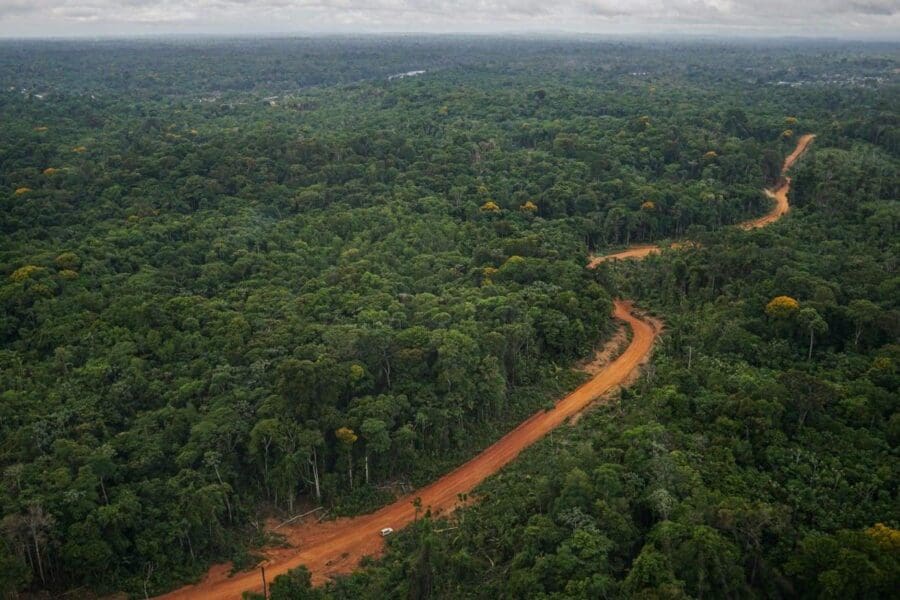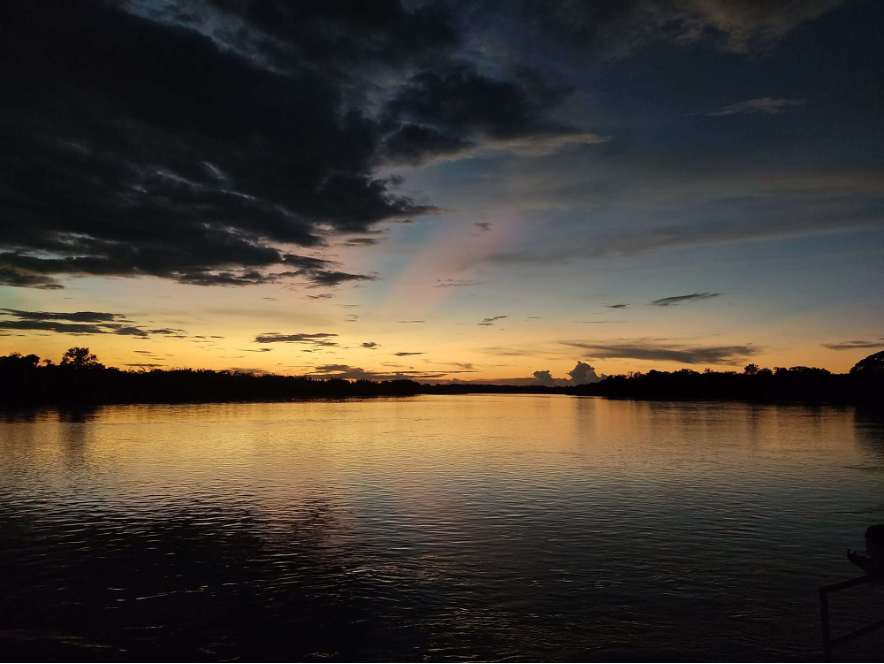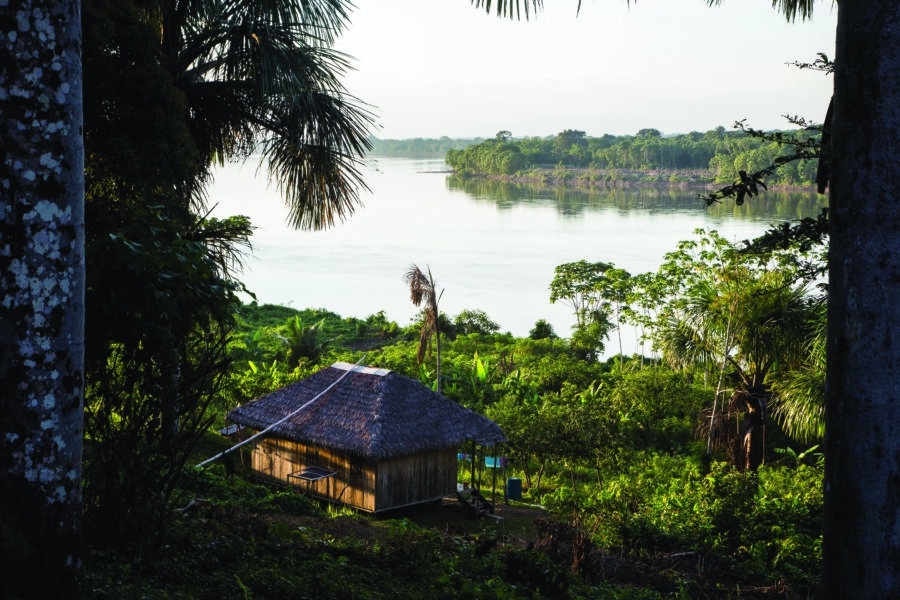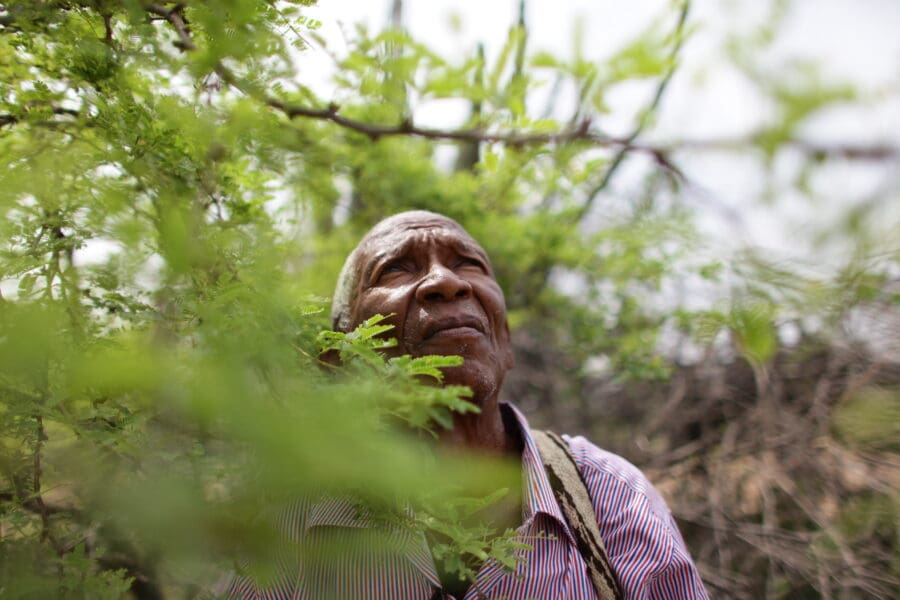A declaration released at a press briefing on June 15 highlights significant overlap between lands claimed by Afro-descendant Peoples in Latin America and the Caribbean and biodiversity hotspots; calling for the inclusion of the term Afro-descendants in the Convention on Biological Diversity (CBD) and UN Framework Convention on Climate Change (UNFCCC).
Bogotá, Colombia (June 14, 2024)—At a press briefing held on June 14, the Coalition of Territorial and Environmental Rights for Afro-descendant Peoples in Latin America and the Caribbean, in alliance with Rights and Resources Initiative (RRI), Proceso De Comunidades Negras (PCN), Coordenação Nacional de Articulação das Comunidades Negras Rurais Quilombolas (CONAQ), and various Afro-descendant organizations released a series of evidence-based recommendations that call on organizers of the 2024 United Nations Biodiversity Conference to include full respect for the rights and contributions of Afro-descendant communities at the global event that will open on October 21 in Calí, Colombia.
Unprecedented in their ambition and geographic breadth, The recomendations seek to influence the outcomes of COP16, with the goal of strengthening the territorial rights of Afro-descendants in Latin America and the Caribbean. Leaders of Afro-descendant movements from across the region argue that territorial rights are key to fulfilling the goal of conserving the most biodiverse region of the planet and central to the reparations owed the 134 million Afro-descendant peoples in the region.
The press briefing brought an end to an end an international conference that took place in Bogotá between June 11-14, where academic experts and civil society allies met with Afro-descendant political leaders and activists representing Afro-descendant peoples from Latin American and Caribbean countries are meeting, the culmination of a decades-long struggle to be recognized as rights holders, much as Indigenous Peoples are.
The briefing followed a panel opened by Francia Marquez, Vice President of Colombia, where Afro-descendant leaders from Brazil and Colombia challenges an audience of representatives of governments, conservation groups and donors to act on the recommendations and on the evidence of the significant conservation role of Afro-descendant communities.
“In none of the international instruments of the COP16 UN Biodiversity Conference 2024 or the 2025 UN Climate Change Conference are the Afro-descendant People included. Neither the term local communities nor Indigenous Peoples identifies or includes us, that is why we have set ourselves the task with the Ministry of Environment of Colombia and the Ministry of Foreign Affairs to ensure that the category of Afro-descendant Peoples is inserted in the COP16. We ask Brazil to accompany Colombia in this petition, which is an enormous tool to establish a plan to safeguard and protect the territories, rights and knowledge of the Afrodescendant Peoples,” said Francia Marquez, the Honorable Vice-President of Colombia.
Known as the post-2020 Global Biodiversity Framework, the global agreement to protect 30 percent of the planet, was finalized at COP15 in Montreal. Decisions about how to implement the agreement will be made at COP16 in Calí in November, potentially affecting the lives, livelihoods and territories of Afro-descendant and other local communities worldwide.
“There should be greater involvement of Afro-descendant Peoples in the climate change discussions. The lack of systematic and comprehensive data on ancestral lands [of Afro-descendant Peoples] renders invisible their important contributions to biodiversity protection and their efforts to address the impacts of climate change. These recommendations are a fundamental step in Afro-descendant Peoples being central in climate change talks,” said José Luis Rengifo, PCN director and spokesperson of the Coalition of Territorial and Environmental Rights for Afro-descendant Peoples in Latin America and the Caribbean.
Currently, neither national nor international legal frameworks fully guarantee the territorial rights of Afro-descendant communities. Colombia has outperformed all other countries in the region in the titling of the lands of Afro-descendant communities, although significant obstacles remain, as a UN human rights delegation noted about Colombia after a country visit last month.
“There are more than 1,271 protected areas within or adjacent to the territories of Afro-descendant Peoples, 77% of which have reduced natural transformation, which demonstrates the enormous contribution of these communities in protecting areas of high ecosystem value. Brazil is a significant country, as 67% of these areas are located in certified municipalities with the presence of Quilombola Peoples without collective title,” said Omaira Bolaños, Director of RRI’s Latin America and Gender Justice Programs.
The recommendations come as the UN closes in on the end of the International Decade for People of African Descent. Proclaimed by the General Assembly to begin in 2014, its theme was meant to be ”recognition, justice and development” for people of African descent.
UN Secretary-General António Guterres recently recognized the enormous contributions of Afro-descendant peoples in every area of human endeavor, while adding, “At the same time, we acknowledge the pervasive discrimination faced by people of African descent around the world, and the many obstacles they face to realizing their full human rights.” The lack of progress led the UN Human Rights Council to propose that the UN proclaim a second International Decade for People of African Descent, starting next year.
“Apologies followed by a full stop is not enough. We need apologies followed by a comma and see what comes next, what are the measures that are going to be taken,” said Barbara Reynolds, from the Working Group of Experts on People of African Descent.









